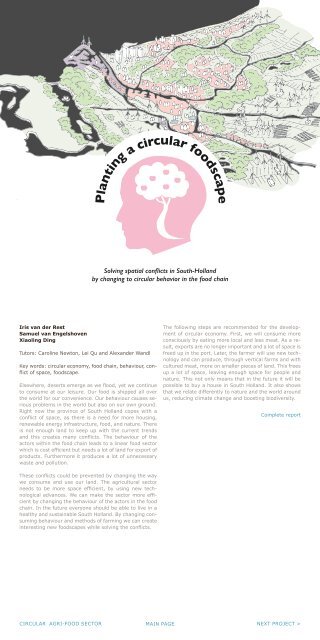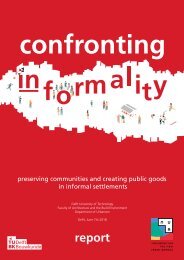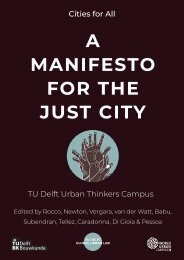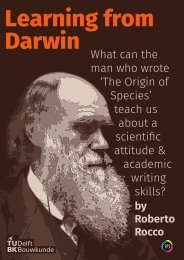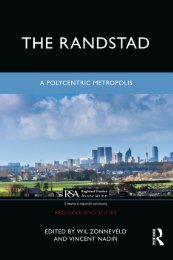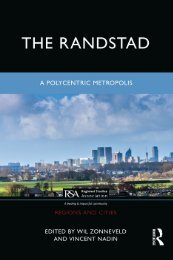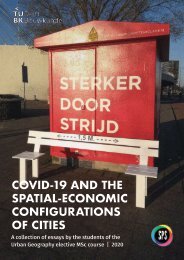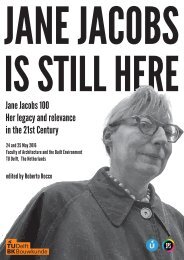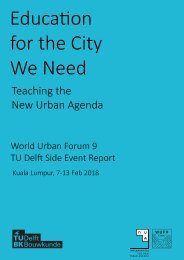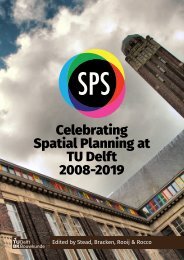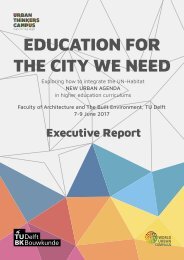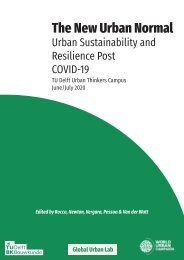Circular Southern Holland, an Online Exhibition
Online exhibition R&D studio Spatial Strategies for the Global Metropolis (AR2U086 & AR2U088), part of MSc Urbanism, Delft University of Technology, organised by Verena Balz and Qu Lei. We proudly present results of the Research & Design studio Spatial Strategies for the Global Metropolis, part of the MSc Architecture, Urbanism and Building Sciences/Track Urbanism programme at Delft University of Technology in an online exhibition. The thematic focus of the 2020-2021 round of the studio was informed by an ambitious policy agenda that the Province of South Holland has set out: aligned with objectives of the Dutch national government, it intends to host a 100% circular economy by 2050. 19 groups of students have analysed spatial and institutional development in Southern Holland and have designed visions and development strategies that lead towards a circular construction- and demolition sector, a circular agri-food sector, and a circular bio-based chemical sector in the region. In conjunction the projects presented in this exhibition explore the spatiality of a circular economy and seek to inspire spatial planning in this way. In the exhibition each student groups’ project is represented by an executive summary, which gives key information on the project and main recommendations on how to foster a circular economy in Southern Holland, and the title page of the group’s project report. Visitors who want to gain a deeper insight into projects can access the actual report in the TU Delft education repository.
Online exhibition R&D studio Spatial Strategies for the Global Metropolis (AR2U086 & AR2U088), part of MSc Urbanism, Delft University of Technology, organised by Verena Balz and Qu Lei.
We proudly present results of the Research & Design studio Spatial Strategies for the Global Metropolis, part of the MSc Architecture, Urbanism and Building Sciences/Track Urbanism programme at Delft University of Technology in an online exhibition.
The thematic focus of the 2020-2021 round of the studio was informed by an ambitious policy agenda that the Province of South Holland has set out: aligned with objectives of the Dutch national government, it intends to host a 100% circular economy by 2050. 19 groups of students have analysed spatial and institutional development in Southern Holland and have designed visions and development strategies that lead towards a circular construction- and demolition sector, a circular agri-food sector, and a circular bio-based chemical sector in the region. In conjunction the projects presented in this exhibition explore the spatiality of a circular economy and seek to inspire spatial planning in this way.
In the exhibition each student groups’ project is represented by an executive summary, which gives key information on the project and main recommendations on how to foster a circular economy in Southern Holland, and the title page of the group’s project report. Visitors who want to gain a deeper insight into projects can access the actual report in the TU Delft education repository.
You also want an ePaper? Increase the reach of your titles
YUMPU automatically turns print PDFs into web optimized ePapers that Google loves.
Pl<strong>an</strong>ting a circular foodscape<br />
Solving spatial conflicts in South-<strong>Holl<strong>an</strong>d</strong><br />
by ch<strong>an</strong>ging to circular behavior in the food chain<br />
Iris v<strong>an</strong> der Rest<br />
Samuel v<strong>an</strong> Engelshoven<br />
Xiaoling Ding<br />
Tutors: Caroline Newton, Lei Qu <strong>an</strong>d Alex<strong>an</strong>der W<strong>an</strong>dl<br />
Key words: circular economy, food chain, behaviour, conflict<br />
of space, foodscape.<br />
Elsewhere, deserts emerge as we flood, yet we continue<br />
to consume at our leisure. Our food is shipped all over<br />
the world for our convenience. Our behaviour causes serious<br />
problems in the world but also on our own ground.<br />
Right now the province of South <strong>Holl<strong>an</strong>d</strong> copes with a<br />
conflict of space, as there is a need for more housing,<br />
renewable energy infrastructure, food, <strong>an</strong>d nature. There<br />
is not enough l<strong>an</strong>d to keep up with the current trends<br />
<strong>an</strong>d this creates m<strong>an</strong>y conflicts. The behaviour of the<br />
actors within the food chain leads to a linear food sector<br />
which is cost efficient but needs a lot of l<strong>an</strong>d for export of<br />
products. Furthermore it produces a lot of unnecessary<br />
waste <strong>an</strong>d pollution.<br />
The following steps are recommended for the development<br />
of circular economy. First, we will consume more<br />
consciously by eating more local <strong>an</strong>d less meat. As a result,<br />
exports are no longer import<strong>an</strong>t <strong>an</strong>d a lot of space is<br />
freed up in the port. Later, the farmer will use new technology<br />
<strong>an</strong>d c<strong>an</strong> produce, through vertical farms <strong>an</strong>d with<br />
cultured meat, more on smaller pieces of l<strong>an</strong>d. This frees<br />
up a lot of space, leaving enough space for people <strong>an</strong>d<br />
nature. This not only me<strong>an</strong>s that in the future it will be<br />
possible to buy a house in South <strong>Holl<strong>an</strong>d</strong>. It also shows<br />
that we relate differently to nature <strong>an</strong>d the world around<br />
us, reducing climate ch<strong>an</strong>ge <strong>an</strong>d boosting biodiversity.<br />
Complete report<br />
These conflicts could be prevented by ch<strong>an</strong>ging the way<br />
we consume <strong>an</strong>d use our l<strong>an</strong>d. The agricultural sector<br />
needs to be more space efficient, by using new technological<br />
adv<strong>an</strong>ces. We c<strong>an</strong> make the sector more efficient<br />
by ch<strong>an</strong>ging the behaviour of the actors in the food<br />
chain. In the future everyone should be able to live in a<br />
healthy <strong>an</strong>d sustainable South <strong>Holl<strong>an</strong>d</strong>. By ch<strong>an</strong>ging consuming<br />
behaviour <strong>an</strong>d methods of farming we c<strong>an</strong> create<br />
interesting new foodscapes while solving the conflicts.<br />
CIRCULAR AGRI-FOOD SECTOR<br />
MAIN PAGE


